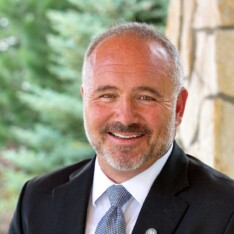The first Pilgrim colonists who arrived in North America in November of 1620 failed in grand ways. Later generations—especially the Founding generation—learned valuable lessons from those failures. We should be thankful.
Death
In the Fall of 1621, with help from the local Wampanoag tribe, there was a harvest, which meant food for hungry colonists living in Plymouth. They celebrated with a feast. This was the first Thanksgiving.
Not all the news, however, was good. Half of the Pilgrims who’d sailed across the Atlantic aboard the Mayflower did not attend that famous first Thanksgiving. They had either starved to death, frozen to death, or succumbed to diseases during the ocean voyage and subsequent first Winter of 1620/21 in the New World.
Not many would consider a fifty percent death rate “successful.”
Theft
According to the diary of Plymouth Governor William Bradford, there remained hungry bellies, despite the harvest, because “much was stolen both by night and day before it became scarce eatable.”
While theft is nothing new, in the shiny hilltop city of Plymouth theft quickly became rampant.
Plymouth was a centrally planned community. Everything was controlled, regulated, and rationed by one central government authority. And like all central planning efforts, the results were scarcity, hunger, and desperation. Hungry, desperate people are more inclined to become thieving people.
Persecution
It would’ve been wonderful had European Pilgrims—and the Puritans who arrived a decade later—established free societies in North America, including religious liberty. But the real history is strikingly different.
Early North American colonies were theocracies, and colonists used religion as a weapon. They were not seeking religious liberty. They’d left Europe because they wanted to be religious persecutors rather than the persecuted.
Religious persecution in the New World, it turned out, led to the same cruel injustices as in the Old. Puritan Governor John Winthrop perfected the arts of cutting off ears and burning holes in the tongues of those who did not profess “correct” religious beliefs.
Rhode Island exists because Roger Williams and Anne Hutchinson were expelled from the Massachusetts Bay Colony for questioning the theology promoted by Puritan preachers.
Socialism
Pilgrims and Puritans were not quick to adopt legal protection for private property. They’d come from feudal Europe, after all, where the only true property owner was the political sovereign, the King.
In many New World settlements, including Plymouth, colonists embraced forms of socialism, even if that term would not come into vogue for another couple hundred years. Rather than individuals owning land privately, and doing with it what they pleased, the government owned all the land and commanded colonists to rotate farming responsibilities.
This led to what economists later would call “tragedy of the commons.” The young men “most able and fit for labor,” Governor Bradford lamented, did everything to avoid farm work while complaining bitterly about being compelled to “spend their time and strength to work for other men’s wives and children.”
Why should a man be productive, innovative, and efficient when the fruits of his labor are confiscated and given to others?
North American colonial socialism fueled yet more central planning, which resulted in more hunger and shortages of everything except tempers and persecution.
Conditions improved only after colonists abandoned the failed experiments in central planning in favor of individual freedom, private property, & free enterprise, where each individual could keep whatever he produced and associate and trade freely with others.
“This had very good success,” Bradford recorded happily, “for it made all hands very industrious.” These colonists discovered, through their own experience, that when human beings are confident they can rightfully keep and protect what they earn and create, they tend to be more productive, and less angry.
The American Founding & Lessons Learned
The American Founders learned from the Pilgrims and Puritans. Rather than socialism and central planning, the Founders wisely chose a constitutional design that featured not one government, but many governments—national, state, and local–of limited, delegated powers.
Individual citizens, therefore, not government authorities, would make most decisions about how to live, how to use their own property, how to raise and educate their own children, how to run their own businesses, and how to worship God.
Incentivized by these conditions of freedom, poor Americans created new wealth and became a prosperous and powerful nation, all within a few generations.
We should remember the lessons of the first Thanksgiving and the terrible human suffering that followed, as our children don capotains and Pilgrim costumes. These are lessons we should teach to members of our political class, to whom we have delegated temporary and limited powers, but who seem eager to repeat the failures of central planning, socialism, and persecution that plagued early Pilgrims and Puritans.








































